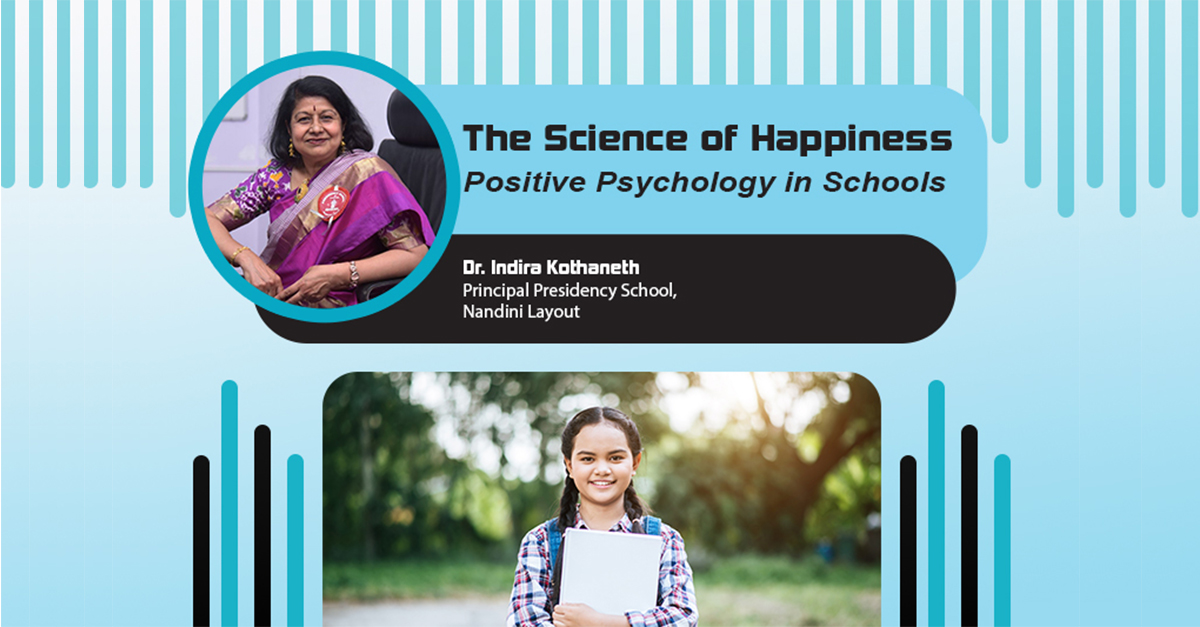The Science of Happiness- Positive Psychology in Schools
In the pursuit of educational excellence, the emotional well-being and happiness of the learner are often overlooked. Happiness in education plays a pivotal role in shaping not only the students' current experience but also their future success and fulfillment.
The traditional approach to psychology focuses on problem-solving, while positive psychology aims to enhance students' ability to cope with life's challenges from a young age. It is a scientific study that explores what makes life meaningful, emphasizing strengths such as inspiration, resilience, and gratitude. By identifying and nurturing the unique strengths and talents of each student, educators can cultivate meaningful connections and build resilience, forming a solid foundation for success in various aspects of a student's life - academic, personal, social, and emotional.
The school curriculum should include Life Skills such as communication, anger management, problem-solving, critical thinking, stress management, and teamwork. By building these skills in students, the aim is to equip them with tools to manage life’s challenges. A positive learning environment based on positive psychology will develop students who feel supported, engaged, and focused in class, connecting better with teachers and peers and achieving better academic outcomes.
The Science of Happiness combines positive psychology, mindfulness, gratitude practices, social relationships, physical activity, meaningful goals, and a sense of purpose. It integrates psychology, neuroscience, and philosophy to enhance well-being. Positive Psychology in school can be implemented through a multifaceted approach by implementing:
- ● Have students choose 5 emotions and write about moments that evoke these emotions in daily life.
- ● Engage in activities specific to each emotion, such as writing gratitude letters or sharing sources of joy.
- ● Acknowledge and provide positive feedback when students demonstrate positive emotions like optimism, pride, and compassion.
- ● Use mindfulness exercises or meditation to reflect on things to be grateful for.
- ● Dedicate time to discuss "What Went Well" at the end of each lesson.
- ● Brainstorm positive aspects of challenging experiences.
- ● Incorporate strategies like gratitude journaling, circle time, reflection exercises, role play, and kindness calendars into the curriculum.
- ● Include regular movement activities, extracurricular engagement, acknowledgment of birthdays, celebrating "stars of the week," and awarding certificates of appreciation to foster a caring and joyful environment in the school.
All these promote a caring and joyful environment in the school adding to the happiness quotient.
At its core, positive psychology in school combines optimism, resilience, and well-being to foster personal growth and fulfillment. Facilitators cultivate positivity through mindful practices, gratitude exercises, and a strength-based approach, nurturing each learner's innate potential.
In conclusion, integrating the Science of happiness and Positive psychology into the school curriculum holds immense promise for fostering the well-being and overall success of students enabling and empowering, and ultimately shaping a brighter and more fulfilling future for all.


Comments